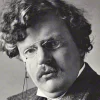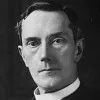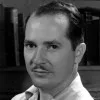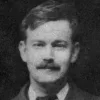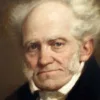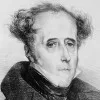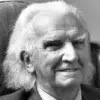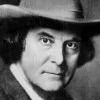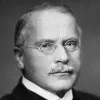Quotations about:
ideology
Note not all quotations have been tagged, so Search may find additional quotes on this topic.
Nor need we be surprised that men so often embrace almost any doctrines, if they are proclaimed with a voice of absolute assurance. In a universe that we do not understand, but with which we must in one way or another somehow manage to deal; and aware of the conflicting desires that clamorously beset us, between which we must choose, and which we must therefore manage to weigh, we turn in our bewilderment to those who tell us that they have found a path out of the thickets and possess the scales by which to appraise our needs. Over and over again such prophets succeed in converting us to unquestioning acceptance; there is scarcely a monstrous belief that has not had its day and its passionate adherents, so eager are we for safe footholds in our dubious course.
Learned Hand (1872-1961) American jurist
Speech (1955-01-29), “A Fanfare for Prometheus,” American Jewish Committee annual dinner, New York City
(Source)
However that may be, it is always disastrous when governments set to work to uphold opinions for their utility rather than for their truth. As soon as this is done it becomes necessary to have a censorship to suppress adverse arguments, and it is thought wise to discourage thinking among the young for fear of encouraging “dangerous thoughts.” When such mal-practices are employed against religion as they are in Soviet Russia, the theologians can see that they are bad, but they are still bad when employed in defence of what the theologians think good. Freedom of thought and the habit of giving weight to evidence are matters of far greater moral import than the belief in this or that theological dogma. On all these grounds it cannot be maintained that theological beliefs should be upheld for their usefulness without regard to their truth.
Bertrand Russell (1872-1970) English mathematician and philosopher
“Is There a God?” (1952)
(Source)
Essay commissioned by Illustrated magazine in 1952, but never published there. First publication in Russell, Last Philosophical Testament, 1943-68 (1997) [ed. Slater/Köllner].
Virtually all ideologues, of any variety, are fearful and insecure, which is why they are drawn to ideologies that promise prefabricated answers for all circumstances.
Jane Jacobs (1916-2006) American-Canadian journalist, author, urban theorist, activist
Dark Age Ahead, ch. 5 (2004)
(Source)
There is this disadvantage to be endured in reading books by members of some party or faction, that they do not always give us the truth. Facts are distorted, opposing points of view are not stated with sufficient force or with complete accuracy; and the most longsuffering reader must tire at last of such a great number of harsh and insulting terms used against one another by these earnest men, who make a personal quarrel out of a doctrinal point or a disputed fact. The peculiar thing about these works is that they deserve neither the prodigious vogue they enjoy for a while nor the profound neglect into which they lapse when, passions and divisions having died down, they become like last year’s almanacs.
[L’on a cette incommodité à essuyer dans la lecture des livres faits par des gens de parti et de cabale, que l’on n’y voit pas toujours la vérité. Les faits y sont déguisés, les raisons réciproques n’y sont point rapportées dans toute leur force, ni avec une entière exactitude; et, ce qui use la plus longue patience, il faut lire un grand nombre de termes durs et injurieux que se disent des hommes graves, qui d’un point de doctrine ou d’un fait contesté se font une querelle personnelle. Ces ouvrages ont cela de particulier qu’ils ne méritent ni le cours prodigieux qu’ils ont pendant un certain temps, ni le profond oubli où ils tombent lorsque, le feu et la division venant à s’éteindre, ils deviennent des almanachs de l’autre année.]
Jean de La Bruyère (1645-1696) French essayist, moralist
The Characters [Les Caractères], ch. 1 “Of Works of the Mind [Des Ouvrages de l’Esprit],” § 58 (1.58) (1688) [tr. Stewart (1970)]
(Source)
Some translators suggests this references polemical writings between the Jesuits and Jansenists.
(Source (French)). Alternate translations:We have this disadvantage in reading Books written by Men of Party and Cabal: We seldom meet with the Truth in 'em; Actions are there disguised, the reasons of both sides are not alledg'd with all their force, nor with an entire exactness. He who has the greatest patience must read abundance of hard, injurious reflexions on the gravest men, with whom the Writer has some personal quarrel about a point of Doctrine, or matter of Controversie. These Books are particular in this, that they deserve not the prodigious Sale they find at their first appearance, nor the profound Oblivion that attends 'em after∣wards: When the fury and division of these Authors cease, they are forgotten, like an Almanack out of date.
[Bullord ed. (1696)]We have this Inconveniency in reading Books written by Men of Party and Cabal, we seldom meet Truth in them; Actions are there disguis'd, the Reasons of both sides not alledg'd with all their force, nor with an entire exactness. He who has the greatest Patience, must read abundance of hard and scurrilous Reflections on the gravest Men, who make a personal Quarrel about a Point of Doctrine, or Matter of Controversy. These Books are particular in this, that they deserve not the prodigious Sale they find at their first appearance, nor the profound Oblivion which attends 'em afterwards. When the Fury and Division of Parties cease, they are forgotten like Almanacks out of date.
[Curll ed. (1713)]This is the certain disadvantage of reading Books written by Men of Party and Cabal, Truth is not in them; Actions are disguised, the Reasons of both sides are not alledged with all their force, nor with an entire exactness. And, what no patience can bear, he must read abundance of scurrilous Reflections tost to and fro by grave Men, making a personal Quarrel about a Point of Doctrine, or controverted Fact. These Books are particular in this, that they deserve not the prodigious Sale they find at their first appearance, nor the profound Oblivion that attends them afterwards: When the Ebullitions of Parties subside, they are forgotten like an Almanack out of date.
[Browne ed. (1752)]The disadvantage of reading books written by people belonging to a certain party or a certain set is that they do not always contain the truth. Facts are disguised, the arguments on both sides are not brought forward in all their strength, nor are they quite accurate; and what wears out the greatest patience is that we must read a large number of harsh and scurrilous reflections, tossed to and fro by serious-minded men, who consider themselves personally insulted when any point of doctrine or any doubtful matter is controverted. Such works possess this peculiarity, that they neither deserve the prodigious success they have for a certain time, nor the profound oblivion into which they fall afterwards, when the rage and contention have ceased, and they become like almanacks out of date.
[tr. Van Laun (1885)]
We are in this lifetime together. And maybe it’s possible to appreciate the other guy for the way his mind works, even when he’s not working your way.
Norman Lear (1922-2023) American television writer-producer
“What makes Norman Lear, at 98, still tick?”, interview by Jonathan LaPook, CBS News Sunday Morning (2021-01-10)
(Source)
Real education precisely consists in the fact that we see beyond the symbols and the mere machinery of the age in which we find ourselves: education precisely consists in the realization of a permanent simplicity that abides behind all civilizations, the life that is more than meat, the body that is more than raiment. The only object of education is to make us ignore mere schemes of education. Without education, we are in a horrible and deadly danger of taking educated people seriously.
Gilbert Keith Chesterton (1874-1936) English journalist and writer
“Our Note Book,” The Illustrated London News (1905-12-02)
(Source)
We are told by some of the Jewish Rabbins, that the first Murder was occasioned by a religious Controversy; and if we had the whole History of Zeal from the Days of Cain to our own Times, we should see it filled with so many Scenes of Slaughter and Bloodshed, as would make a wise Man very careful how he suffers himself to be actuated by such a Principle, when it only regards Matters of Opinion and Speculation.
Joseph Addison (1672-1719) English essayist, poet, statesman
Essay (1711-10-02), The Spectator, No. 185
(Source)
Once divested of missionary virus, the cult of our gods gives no offense. It would be a peaceful age if this were recognized, and religion, Christian, communist or any other, were to rely on practice and not on conversion for her growth.
Freya Stark (1893-1993) Franco-British explorer, travel writer [Freya Madeline Stark]
Ionia: A Quest, ch. 17 (1954)
(Source)
Many quite nefarious ideologies pass for common sense. For decades of American history, it was common sense in some quarters for white people to own slaves and for women not to vote. If common sense sometimes preserves the social status quo, and that status quo sometimes treats unjust social hierarchies as natural, it makes good sense on such occasions to find ways of challenging common sense.
One of the things he deplored about the loss of religion, it meant that people elevated politics into a religious faith and that was dangerous.
P. D. James (1920-2014) British mystery writer [Phyllis Dorothy James White]
“Mortal Consequences,” A Taste for Death (1986)
(Source)
There’s something in all of us that wants to drift toward a mob, where we can all say the same thing without having to think about it, because everybody is all alike except people that we can hate or persecute. Every time we use words, we’re either fighting against this tendency or giving in to it. When we fight against it, we’re taking the side of genuine and permanent human civilization.
Northrop Frye (1912-1991) Canadian literary critic and literary theorist
The Educated Imagination, Talk 6 “The Vocation of Eloquence” (1963)
(Source)
A political ideology is a very handy thing to have. It’s a real time-saver, because it tells you what you think about things you know nothing about.
Hendrik Hertzberg (b. 1943) American journalist, editor, speech writer, political commentator
“A Moral Ideologue: The Character of Jimmy Carter,” Character Above All, PBS (31 May 1995)
(Source)
Preparation essay for the PBS series on modern presidents. The passage itself is referring, in contrast, to Ronald Reagan, who defeated Carter for reelection as US President in 1980.
For the fascist, schools and universities are there to indoctrinate national or racial pride, conveying for example (where nationalism is racialized) the glorious achievements of the dominant race.
Jason Stanley (b. 1969) American philosopher, epistemologist, academic
How Fascism Works: The Politics of Us and Them, ch. 4 (2018)
(Source)
The strategic aim of these hierarchical constructions of history is to displace truth, and the invention of a glorious past includes the erasure of inconvenient realities.
Jason Stanley (b. 1969) American philosopher, epistemologist, academic
How Fascism Works: The Politics of Us and Them, ch. 1 (2018)
(Source)
No simplicity of mind, no obscurity of station, can escape the universal duty of questioning all that we believe.
William Kingdon Clifford (1845-1879) English mathematician and philosopher
“The Ethics of Belief,” Part 1 “The Duty of Inquiry,” Contemporary Review (Jan 1877)
(Source)
The final mode is misplaced faith. It involves the sort of self-deifying claims the president made when he said that “I alone can solve it” or “I am your voice.” When faith descends from heaven to earth in this way, no room remains for the small truths of our individual discernment and experience. What terrified Klemperer was the way that this transition seemed permanent. Once truth had become oracular rather than factual, evidence was irrelevant. At the end of the war a worker told Klemperer that “understanding is useless, you have to have faith. I believe in the Führer.”
Timothy Snyder (b. 1969) American historian, author
On Tyranny: Twenty Lessons from the Twentieth Century (2017)
(Source)
Macbeth’s self-justifications were feeble — and his conscience devoured him. Yes, even Iago was a little lamb, too. The imagination and spiritual strength of Shakespeare’s evildoers stopped short at a dozen corpses. Because they had no ideology.
Ideology — that is what gives evildoing its long-sought justification and gives the evildoer the necessary steadfastness and determination. That is the social theory which helps to make his acts seem good instead of bad in his own and others’ eyes, so that he won’t hear reproaches and curses but will receive praise and honors. That was how the agents of the Inquisition fortified their wills: by invoking Christianity; the conquerors of foreign lands, by extolling the grandeur of their Motherland; the colonizers, by civilization; the Nazis, by race; and the Jacobins (early and late), by equality, brotherhood, and the happiness of future generations.
Alexander Solzhenitsen (1918-2008) Russian novelist, emigre [Aleksandr Isayevich Solzhenitsyn]
The Gulag Archipelago, Vol. 1, Part 1, ch. 4 (1973) [tr. Whitney]
(Source)
Ideas have consequences, and totally erroneous ideas are likely to have destructive consequences.
Steve Allen (1922-2000) American composer, entertainer, and wit.
More Steve Allen on the Bible, Religion, and Morality, “Authenticity of the Bible” (1993)
(Source)
In a courtroom there is no system on trial, no history or historical trend, no ism, anti-Semitism for instance, but a person, and if the defendant happens to be a functionary, he stands accused precisely because even a functionary is still a human being, and it is in this capacity that he stands trial.
Hannah Arendt (1906-1975) German-American philosopher, political theorist
“Personal Responsibility Under Dictatorship” (1964)
(Source)
The less depth a belief system has, the greater the fervency with which its adherents embrace it. The most vociferous, the most fanatical are those whose cobbled faith is founded on the shakiest grounds.
Dean Koontz (b. 1945) American writer [also writes as Leigh Nichols]
Forever Odd, ch. 33 (2005)
(Source)
A man must not swallow more beliefs than he can digest.
Havelock Ellis (1859-1939) British sexologist, physician, social reformer [Henry Havelock Ellis]
The Dance of Life, ch. 5 “The Art of Religion,” sec. 4 (1923)
(Source)
The difference between a conviction and a prejudice is that you can explain a conviction without getting angry.
(Other Authors and Sources)
Anonymous
No definitive source is found for this quotation. Frequently attributed to Gregory Benford, Deeper than the Darkness (1970), but it has shown up anonymously at least as early as 1951 as "filler" material in periodicals. Also sometimes attributed to Samuel Butler or Dorothy Sarnoff, but not with any citation.
When the heavy-handed dogmatist requires a categorical assent to the literal truth of the miraculous, in exactly the same sense in which physical facts are true, a tension between faith and reason cannot be avoided.
William Ralph Inge (1860-1954) English prelate [Dean Inge]
“Bishop Gore and the Church of England” (1908), Outspoken Essays: First Series (1911)
(Source)
There lies at the back of every creed something terrible and hard for which the worshipper may one day be required to suffer.
E. M. Forster (1879-1970) English novelist, essayist, critic, librettist [Edward Morgan Forster]
“What I Believe,” The Nation (16 Jul 1938)
(Source)
The capacity of the human mind for swallowing nonsense and spewing it forth in violent and repressive action has never yet been plumbed.
Robert A. Heinlein (1907-1988) American writer
“Concerning Stories Never Written” (Oct 1952)
(Source)
It is a truism that almost any sect, cult, or religion will legislate its creed into law if it acquires the political power to do so, and will follow it by suppressing opposition, subverting all education to seize early the minds of the young, and by killing, locking up, or driving underground all heretics. This is equally true whether the faith is Communism or Holy-Rollerism; indeed it is the bounden duty of the faithful to do so. The custodians of the True Faith cannot logically admit tolerance of heresy to be a virtue.
Robert A. Heinlein (1907-1988) American writer
“Concerning Stories Never Written” (Oct 1952)
(Source)
The kind of man who wants the government to adopt and enforce his ideas is always the kind of man whose ideas are idiotic.
H. L. Mencken (1880-1956) American writer and journalist [Henry Lewis Mencken]
Minority Report, #323 (1956)
(Source)
The process which, if not checked, will abolish Man goes on apace among Communists and Democrats no less than among Fascists. The methods may (at first) differ in brutality. But many a mild-eyed scientist in pince-nez, many a popular dramatist, many an amateur philosopher in our midst, means in the long run just the same as the Nazi rulers of Germany: ‘Traditional values are to be debunked’ and mankind to be cut out into some fresh shape at the will (which must, by hypothesis, be an arbitrary will) of some few lucky people in one lucky generation which has learned how to do it.
There is also this: when we renounce the self and become part of a compact whole, we not only renounce personal advantage but are also rid of personal responsibility. There is no telling to what extremes of cruelty and ruthlessness a man will go when he is freed from the fears, hesitations, doubts and the vague stirrings of decency that go with individual judgement. When we lose our individual independence in the corporateness of a mass movement, we find a new freedom — freedom to hate, bully, lie, torture, murder and betray without shame and remorse. Herein undoubtedly lies part of the attractiveness of a mass movement.
Eric Hoffer (1902-1983) American writer, philosopher, longshoreman
True Believer: Thoughts on the Nature of Mass Movements, Part 3, ch. 14, § 77 (1951)
(Source)
Revolutions, as a long and bitter experience reveals, are apt to take their colour from the régime which they overthrow. Is it any wonder that the creed which affirms the absolute rights of property should sometimes be met with a counter-affirmation of the absolute rights of labour, less anti-social, indeed, and inhuman, but almost as dogmatic, almost as intolerant and thoughtless as itself.
R. H. Tawney (1880-1962) English writer, economist, historian, social critic [Richard Henry Tawney]
The Acquisitive Century, ch. 3 “The Acquisitive Society” (1920)
(Source)
The practice of terror serves the true believer not only to cow and crush his opponents but also to invigorate and intensify his own faith.
Eric Hoffer (1902-1983) American writer, philosopher, longshoreman
True Believer: Thoughts on the Nature of Mass Movements, Part 3, ch. 14, § 85 (1951)
(Source)
But the problem with any ideology is that it gives the answer before you look at the evidence. So you have to mold the evidence to get the answer that you’ve already decided you’ve got to have. It doesn’t work that way.
You’re not supposed to be so blind with patriotism that you can’t face reality. Wrong is wrong, no matter who does it or says it.
Malcolm X (1925-1965) American revolutionary, religious leader [b. Malcolm Little]
“Prospects for Freedom in 1965,” speech, New York (7 Jan 1965)
(Source)
Philosophy, brought afresh to repute by Kant […] had soon become a tool of interests; of state interests […] The driving forces of this movement are, contrary to all these solemn airs and assertions, not ideal […] Party interests are vehemently agitating the pens of so many purer lovers of wisdom […] truth is certainly the last thing they have in mind […] Philosophy is misused, from the side of the state as tool, from the other side as means of gain […] Governments make of philosophy a means of serving their state interests, and scholars make of it a trade.
Arthur Schopenhauer (1788-1860) German philosopher
(Attributed)
(Source)
Criticizing Hegel and Hegelianism, and the latter's state-philosophy alliance. Attributed in Karl Popper, The Open Society and Its Enemies, ch. 12 (1945).
BOOK: Only one thing is gonna walk you though this, Mal: belief.
MAL: You know I always look to you for counsel, but sermons make me sleepy, Shepherd. I ain’t looking for help on high. That’s a long wait for a train don’t come.
BOOK: When I talk about belief, why do you always assume I’m talking about God?
Wooden-headedness consists of assessing a situation in terms of preconceived, fixed notions while ignoring or rejecting any contrary signs. It is acting according to wish while not allowing oneself to be confused by the facts.
‘Patriotism is not enough.’ But neither is anything else. Science is not enough, religion is not enough, art is not enough, politics and economics are not enough, nor is love, nor is duty, nor is action however disinterested, nor, however sublime, is contemplation. Nothing short of everything will really do.
A novel is never anything but a philosophy put into images. And in a good novel, the whole of the philosophy has passed into the images. But if once the philosophy overflows the characters and action, and therefore looks like a label stuck on the work, the plot loses its authenticity and the novel its life. Nevertheless, a work that is to last cannot dispense with profound ideas. And this secret fusion between experiences and ideas, between life and reflection on the meaning of life, is what makes the great novelist.
As with bad breath, ideology is always what the other person has.
Terry Eagleton (b. 1943) British literary theorist, critic, intellectual [Terence Francis Eagleton]
“Why ideas no longer matter,” The Guardian (22 Mar 2004)
(Source)
Writers the most learned, the most accurate in details, and the soundest in tendency, frequently fall into a habit which can neither be cured nor pardoned — the habit of making history into the proof of their theories.
John Dalberg, Lord Acton (1834-1902) British historian, politician, writer
Speech (1877-02-28), “The History of Freedom in Antiquity,” Bridgenorth Institute
(Source)
Advice to persons about to write History: Don’t. […]
In the Moral Sciences Prejudice is Dishonesty.
A Historian has to fight against temptations special to his mode of life, temptations from Country, Class, Church, College, Party, Authority of talents, solicitation of friends.
The most respectable of these influences are the most dangerous.
The historian who neglects to root them out is exactly like a juror who votes according to his personal likes or dislikes.
In judging men and things Ethics go before Dogma, Politics or Nationality.
The Ethics of History cannot be denominational.
Judge not according to the orthodox standard of a system religious, philosophical, political, but according as things promote, or fail to promote the delicacy, integrity, and authority of Conscience.
Put conscience above both System and Success.
History provides neither compensation for suffering nor penalties for wrong.
The only religion that still demands human sacrifice is nationalism.
Kenneth Ewart Boulding (1910-1993) American economist, educator, poet, philosopher
Lecture, University of Michigan (28 Jan 1969)
(Source)
Quoted in Stephen Nelson, "Nature/Nurture Revisited I: A Review of the Biological Bases of Conflict," Journal of Conflict Resolution (Jun 1974).
We find it almost as difficult as the communists to believe that anyone could think ill of us, since we are as persuaded as the communists that our society is so essentially virtuous that only malice could prompt criticism of any of our actions.
Most Americans don’t live their lives solely as Democrats or Republicans or conservatives or liberals. Most Americans live their lives that are just a little bit late for something they have to do. Often it’s something they do not want to do, but they do it. Impossible things get done every day that are only made possible by the little, reasonable compromises.
So many gods, so many creeds;
So many paths that wind and wind,
While just the art of being kind
Is all the sad world needs.Ella Wheeler Wilcox (1850-1919) American author, poet, temperance advocate, spiritualist
Poem (1896), “The World’s Need,” Custer and Other Poems
(Source)
Mass movements can rise and spread without belief in a God, but never without belief in a devil.
Eric Hoffer (1902-1983) American writer, philosopher, longshoreman
True Believer: Thoughts on the Nature of Mass Movements, Part 3, ch. 15, § 65 (1951)
(Source)
The trouble with Communism is the Communists, just as the trouble with Christianity is the Christians.
H. L. Mencken (1880-1956) American writer and journalist [Henry Lewis Mencken]
“Mr. Mencken Sounds Off,” interview, LIFE Magazine (5 Aug 1946)
(Source)
If your religion does not change you, then you had better change your religion.
Elbert Hubbard (1856-1915) American writer, businessman, philosopher
One Thousand & One Epigrams (1911)
(Source)
We are now again in an epoch of wars of religion, but a religion is now called an “ideology.”
Bertrand Russell (1872-1970) English mathematician and philosopher
“Philosophy and Politics,” lecture, National Book League, London (1946-10-23)
(Source)
Collected in Unpopular Essays (1950).
It is this belief in absolutes, I would hazard, that is the great enemy today of the life of the mind. This may seem a rash proposition. The fashion of the time is to denounce relativism as the root of all evil. But history suggests that the damage done to humanity by the relativist is far less than the damage done by the absolutist — by the fellow who, as Mr. Dooley once put it, “does what he thinks th’ Lord wud do if He only knew th’ facts in th’ case.”
I think the metric by which television is considered liberal is literally based on the metric of liberalism in each person’s soul. Peoples’ senses of humor tend to go about as far as their ideology.
Jon Stewart (b. 1962) American satirist, comedian, and television host. [b. Jonathan Stuart Leibowitz]
“No News Is Good News,” interview by Adam Bulger, The Hartford Advocate (2008-06-12)
(Source)
On whether The Daily Show is liberal.
To be effective a doctrine must not be understood, but has to be believed in. We can be absolutely certain only about things we do not understand. A doctrine that is understood is shorn of its strength.
Eric Hoffer (1902-1983) American writer, philosopher, longshoreman
True Believer: Thoughts on the Nature of Mass Movements, Part 3, ch. 13, § 57 (1951)
(Source)
I reject the idea there are just two sides. I think that with the amount of ideas and thoughts there are, it’s not even going to be consistent with the same person. People can hold liberal and conservative dogma points at the same time. They’re not living their lives via platforms. They’re living their lives. The whole thing is an awfully tired construct.
Jon Stewart (b. 1962) American satirist, comedian, and television host. [b. Jonathan Stuart Leibowitz]
“No News Is Good News,” interview by Adam Bulger, The Hartford Advocate (2008-06-12)
(Source)
You can take away a man’s gods, but only to give him others in return.
If you want a war, nourish a doctrine. Doctrines are the most frightful tyrants to which men are ever subject, because doctrines get inside a man’s reason and betray him against himself. Civilized men have done their fiercest fighting for doctrines. The reconquest of the Holy Sepulcher, “the balance of power,” “no universal dominion,” “trade follows the flag,” “he who holds the land will hold the sea,” “the throne and the altar,” the revolution, the faith — these are the things for which men have given their lives. What are they all? Nothing but rhetoric and phantasms.
William Graham Sumner (1840-1910) American minister, sociologist, anthropologist.
“War” (1903), War and Other Essays [ed. A. Keller (1911)]
(Source)
The problem with ideology is, if you’ve got an ideology, you’ve already got your mind made up. You know all the answers and that makes evidence irrelevant and arguments a waste of time. You tend to govern by assertion and attacks.
When religion becomes a mere artificial façade to justify a social or economic system — when religion hands over its rites and language completely to the political propagandist, and when prayer becomes the vehicle for a purely secular ideological program, then religion does tend to become an opiate. It deadens the spirit enough to permit the substitution of a superficial fiction and mythology for the truth of life. And this brings about the alienation of the believer, so that his religious zeal becomes political fanaticism. His faith in God, while preserving its traditional formulas, becomes in fact faith in his own nation, class or race. His ethic ceases to be the law of God and love, and becomes the law of might-makes-right: established privilege justifies everything. God is the status quo.
At Cambridge University I was taught a laudable method of argument: you never personalise, but you have absolutely no respect for people’s opinions. You are never rude to the person, but you can be savagely rude about what the person thinks. That seems to me a crucial distinction: people must be protected from discrimination by virtue of their race, but you cannot ring-fence their ideas. The moment you say that any idea system is sacred, whether it’s a religious belief system or a secular ideology, the moment you declare a set of ideas to be immune from criticism, satire, derision, or contempt, freedom of thought becomes impossible.
Salman Rushdie (b. 1947) Indian novelist
“Do we have to fight the battle for the Enlightenment all over again?” The Independent (22 Jan 2005)
(Source)
All movements go too far.
Bertrand Russell (1872-1970) English mathematician and philosopher
“On Being Modern-Minded,” The Nation (1937-01-09)
(Source)
Full context:All movements go too far, and this is certainly true of the movement toward subjectivity, which began with Luther and Descartes as an assertion of the individual and has culminated by an inherent logic in his complete subjection.
Collected in Unpopular Essays (1950).
Ideological differences are no excuse for rudeness.
Judith Martin (b. 1938) American author, journalist, etiquette expert [a.k.a. Miss Manners]
“Miss Manners,” syndicated column (1978-10-08)
(Source)
On interactions between the general public and picketers, though she has used the phrase on other occasions.
Reprinted in Miss Manners’ Guide to Excruciatingly Correct Behavior, Part 3 "Basic Civilization," "Common Courtesy for All Ages" (1983).







